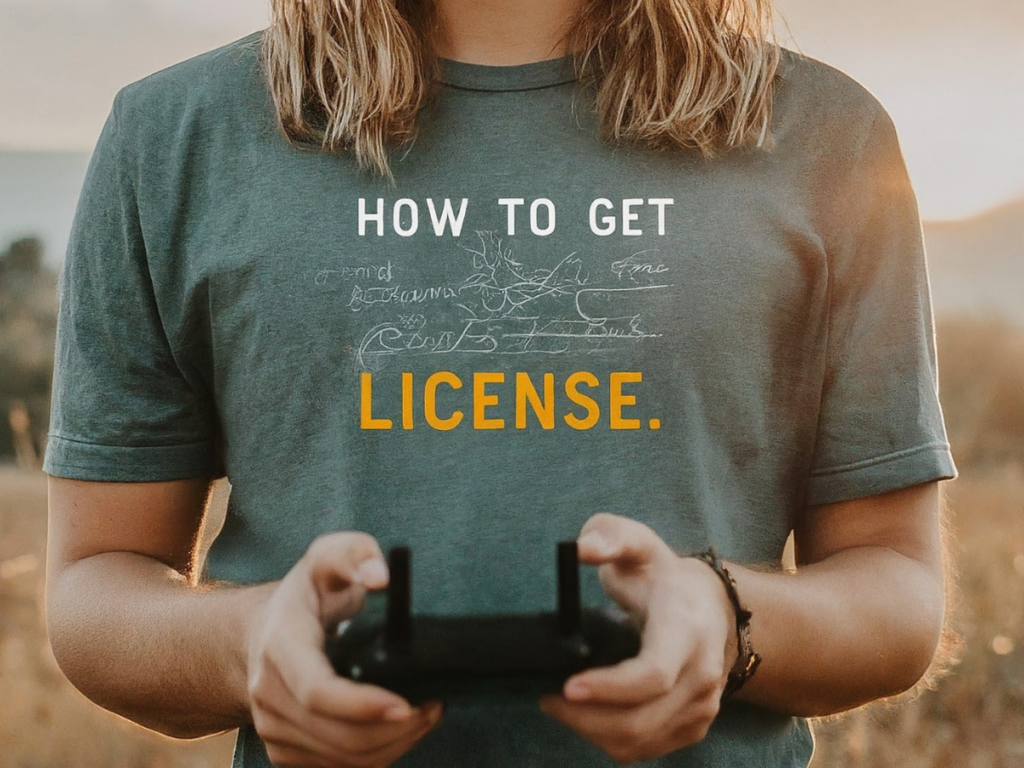Drone License Canada: A Step-by-Step Guide
Get your Drone License Canada with this simple step-by-step guide. Learn the requirements for both Basic and Advanced licenses, prepare for the Transport Canada drone exam, and secure your drone pilot certificate. Ensure you fly legally and safely for recreational or commercial use.
Why You Need a Drone License in Canada
Canadian drone regulations are strict, and flying without a proper drone license can result in hefty fines or penalties. To avoid these issues and to operate safely, obtaining the correct license is crucial. There are two primary types of drone pilot licenses in Canada: Basic and Advanced. These licenses not only ensure that you understand the necessary safety measures but also equip you with the skills needed to navigate the legal and technical aspects of drone operation. Having a license, whether for recreational or commercial drone flying in Canada, ensures compliance with Transport Canada regulations.
Types of Drone Licenses in Canada
Basic Drone License
The Basic Drone License is ideal for those flying recreationally or performing light commercial tasks. If you’re flying in uncontrolled airspace and not near people, this is the license for you. However, there are limitations, including restrictions on where you can fly, such as near airports or controlled zones.
Advanced Drone License
For those looking to take their drone flying to a professional level, the Advanced Drone License is required. This license allows you to fly in controlled airspace, near people, and perform more advanced maneuvers—perfect for commercial drone operations. Additional training and a flight review are needed for this license, ensuring that operators can handle complex flying scenarios.
Step-by-Step Process to Get a Basic Drone License
1.Eligibility Check
To qualify for a Basic Drone License in Canada, you must be at least 14 years old. Additionally, your drone must be registered with Transport Canada. The drone registration process is straightforward and mandatory for all drones weighing between 250g and 25kg.
2.Study for the Exam
To prepare for the Transport Canada Drone Exam, there are several resources available, such as the official study guide and online UAV drone pilot training courses. These resources will cover essential topics, including Canadian drone regulations, airspace classifications, and flight safety protocols.
3.Take the Online Exam
Once prepared, you can register for the online Basic Drone License exam through the Transport Canada website. The exam consists of multiple-choice questions that test your knowledge on topics like Canadian drone rules, safety, and proper drone operation.
4.Pass the Basic Knowledge Exam
To pass the exam, you need a score of at least 65%. Results are typically available immediately, and if you don’t pass, you can retake the exam after a 24-hour waiting period.
5. Get Your Pilot Certificate
After passing the exam, you can download your Drone Pilot Certificate from Transport Canada. This certificate is your official drone license in Canada and must be carried with you whenever you’re operating a drone.
Step-by-Step Process to Get an Advanced Drone License
Eligibility Requirements
To obtain the Advanced Drone License, you must be at least 16 years old. As with the Basic License, your drone must also be registered with Transport Canada.
Study for the Advanced Exam
The Advanced Drone Exam is more comprehensive and covers topics like flying in controlled airspace and handling emergencies. Many opt for specialized UAV drone pilot training programs to prepare for this more challenging exam.
Take the Advanced Exam
The format of the Advanced Drone License exam is similar to the Basic exam but involves more in-depth questions. A minimum score of 80% is required to successfully pass.
Flight Review
After passing the written exam, you’ll need to complete a flight review. This is a practical test where you demonstrate your ability to safely fly a drone under different conditions. Transport Canada provides a list of authorized flight reviewers across Canada.
Receive Your Advanced License
Once you’ve completed both the exam and the flight review, you’ll be issued an Advanced Drone Pilot Certificate. This certificate allows you to fly drones for professional and commercial drone operations in controlled airspace.
Costs and Fees for Getting a Drone License in Canada
The cost of obtaining a drone license in Canada varies depending on the type of license. The Basic Drone License exam fee is generally lower, while the Advanced License involves additional costs for the flight review. On average, the fees for the Transport Canada Drone Exam and registration range from $10 to $150, with flight review costs potentially higher.
Where to Take the Exam and Flight Review
You can take the Transport Canada drone exam online for both the Basic and Advanced licenses. As for the flight review, there are numerous locations across Canada, including major cities like Toronto, Vancouver, and Montreal. You can find approved testing centers and flight reviewers through Transport Canada’s official directory.
FAQs About Drone Licenses Canada
Do I need a drone license for recreational flying?
-Yes, even for recreational flying, a license is required in Canada.
What is the typical timeframe to obtain a drone license?
-The process can take anywhere from a few days to a few weeks, depending on how quickly you complete the requirements.
Can I fly a drone without a license in rural areas?
-No, you need a license to fly a drone anywhere in Canada, including rural areas.
What happens if I fail the drone pilot exam?
-If you don’t pass, you’re eligible to attempt the exam again after a 24-hour waiting period.
Conclusion
Obtaining a drone license in Canada is essential for both recreational and professional drone pilots. By following this guide, you can navigate the process smoothly, ensuring you comply with Canadian drone regulations and enjoy flying safely. Whether you’re getting a Basic or Advanced Drone License, it’s important to be prepared, stay informed, and always priorities safety.

